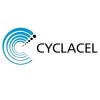
Efficacy and Safety Study of StemEx®, to Treat Subjects With High Risk Hematologic Malignancies,...
Hematologic MalignanciesAcute Myeloid Leukemia5 moreThe purpose of this study is to determine the efficacy and safety of transplanting StemEx® in patients with certain hematological malignancies. For these patients, it is suggested that StemEx® can improve upon the outcome of transplanting a single, unmanipulated cord blood unit by significantly increasing the number of stem/progenitor cells available to the patient.

Gleevec/Low-Dose Ara-C Study for Elderly Patients With AML and Myelodysplastic Syndromes
LeukemiaMyeloid1 moreThe goal of this clinical research study is to learn if the combination of Gleevec (imatinib mesylate) and low doses of Cytarabine (ara-C) may help to control leukemia while causing fewer side effects than standard high dose chemotherapy.

Fludarabine Phosphate, Cyclophosphamide, and Total-Body Irradiation Followed by Donor Bone Marrow...
Acute Myeloid Leukemia in Remissionde Novo Myelodysplastic Syndrome2 moreThis phase II trial studies how well total-body irradiation (TBI) works when given together with fludarabine phosphate and cyclophosphamide followed by donor bone marrow transplant, mycophenolate mofetil, and cyclosporine in treating patients with Fanconi anemia (FA). Giving low doses of chemotherapy, such as fludarabine phosphate and cyclophosphamide, and TBI before or after a donor bone marrow transplant helps stop the growth of abnormal cells. It may also stop the patient's immune system from rejecting the donor's stem cells. The donated stem cells may replace the patient's immune cells and help destroy any remaining cancer cells (graft-versus-tumor effect). Sometimes the transplanted cells from a donor can also make an immune response against the body's normal cells. Giving mycophenolate mofetil and cyclosporine after the transplant may stop this from happening.

Efficacy and Safety of Deferasirox in Patients With Myelodysplastic Syndrome and Transfusion-dependent...
Myelodysplastic SyndromesTransfusion Dependent Iron OverloadThe purpose of this study is to investigate the effects of iron chelation using deferasirox in low and INT-1 risk (referring to the international prognostic scoring system, IPSS) MDS patients who show signs of iron overload due to repeated blood transfusions. This trial is not recruiting patients in the United States.

Safety and Pharmacology Study of Sapacitabine to Treat Advanced Leukemias or Myelodysplastic Syndromes...
LeukemiasMyelodysplastic SyndromesThe goal of this safety/pharmacology study is to determine MTD of sapacitabine when administered in patients with advanced leukemias or myelodysplastic syndromes.

A Study of Luspatercept (ACE-536) to Treat Anemia Due to Very Low, Low, or Intermediate Risk Myelodysplastic...
Myelodysplastic SyndromesThe study will be conducted in compliance with the International Council on Harmonisation (ICH) of Technical Requirements for Registration of Pharmaceuticals for Human Use/Good Clinical Practice (GCP) and applicable regulatory requirements. This is a Phase 3, double-blind, randomized, placebo-controlled, multicenter study to determine the efficacy and safety of luspatercept (ACE-536) versus placebo in participants with anemia due to the Revised International Prognostic Scoring System (IPSS-R) very low, low, or intermediate MDS with ring sideroblasts who require red blood cell (RBC) transfusions.

CAMELLIA: Anti-CD47 Antibody Therapy in Haematological Malignancies
Acute Myeloid LeukemiaMyelodysplastic SyndromeThis phase I trial studies the side effects and best dose of anti-cluster of differentiation (CD)47 monoclonal antibody Hu5F9-G4 in treating patients with haematological malignancies including acute myeloid leukemia that has returned after a period of improvement (relapsed) or has not responded to previous treatment (refractory), or high risk myelodysplastic syndrome. Monoclonal antibodies, such as anti-CD47 monoclonal antibody Hu5F9-G4, block cancer growth in different ways by targeting certain cells.

Transplantation of NiCord®, Umbilical Cord Blood-derived Ex Vivo Expanded Cells, in Patients With...
Hematological MalignanciesAcute Lymphoblastic Leukemia (ALL)2 moreA Study Evaluating the Safety and Efficacy of Transplantation of a single cord blood unit (CBU) of NiCord®, umbilical cord blood-derived Ex Vivo Expanded Stem and Progenitor Cells in Patients with Hematological Malignancies.

Efficacy and Safety of IV Rigosertib in MDS Patients With Excess Blasts Progressing After Azacitidine...
Myelodysplastic SyndromesRefractory Anemia With Excess Blasts2 moreThis study will examine the effect intravenously administered rigosertib has on the relationship between bone marrow blasts response and overall survival in myelodysplastic syndromes (MDS) patients who have 5-30% bone marrow blasts and who progressed on or after treatment with azacitidine or decitabine.

Eltrombopag With or Without Hypomethylating Agent After Hypomethylating Agent Failure For Patients...
LeukemiaThe goal of this clinical research study is to learn if eltrombopag can help to control MDS. The safety of this drug will also be studied.
